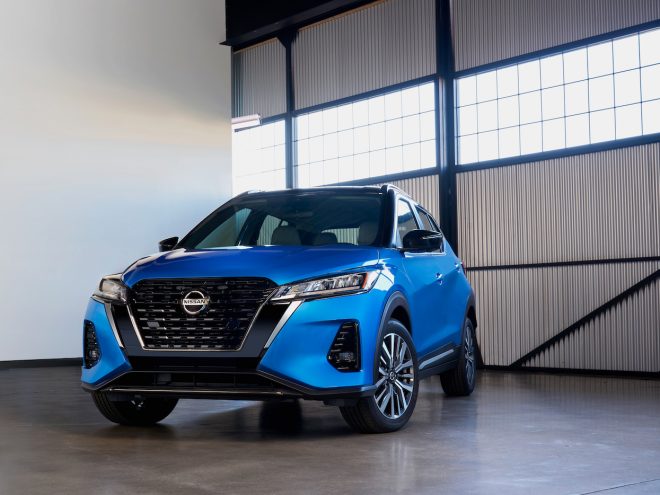
Top Strategies to Secure the Best Used Van Deals for Small Businesses
Small businesses, particularly self-employed individuals, can enjoy a considerable boost in efficiency and effectiveness with the use of a company van. The decoded mobility can expand offerings and reach, both geographically and demographically. However, buying a new van isn’t always a financially viable option for every enterprise, especially small and medium enterprises (SMEs). For self-employed individuals and SMEs, securing the best deals on used vans presents an alternative approach that’s not only cost-effective but also fulfills operational needs efficiently. To make the most of this option, consider consulting a van financing guide for self-employed individuals to navigate the process effectively.
- Understand Your Business Requirements
Before leaping into the expansive market of used van deals, small businesses must first understand their specific requirements. The size, type, and condition of the van must be in line with the nature and demands of your operations. Carefully assess your business needs. Make sure whether you need specialist vans with bespoke features or a general-purpose commercial vehicle would suffice. A well-thought-out decision here can help save cost and contribute to operational efficiency.
- Perform Thorough Market Research
Next, perform extensive market research. The availability of online platforms has made market surveys simpler and easier than ever before. Monitor different platforms and compare prices, product specifications, and terms of the deal. As part of your research, evaluate the projected running costs and potential maintenance expenses too. Always bear in mind that cheapest isn’t always the best. Instead, aim for the highest value, which appeals to your business requirements and budget constraints.
- Do a Comprehensive Vehicle Check
A comprehensive used van check is essential to avoid hidden nasties, from outstanding finance to potential mechanical issues. Ask for the van’s complete service history to get insights into potential future problems. Look out for gaps in service history as they might hide potential issues. If possible, take a mechanic or someone who knows about vehicles to inspect the van.
- Negotiate Your Deal
Sellers naturally anticipate negotiations, making it essential to proactively engage in the process. Whether you’re discussing price, warranty, or aftersales support, don’t shy away from seeking better terms that align with your needs. If the deal fails to match your expectations, be prepared to walk away without hesitation, as there are invariably alternative options available to explore.
- Exploring Van Financing
Many small businesses do not have the funds to make an outright purchase. This is where a well-structured financing plan becomes important. Whether it’s through hire purchase, leasing, or any other type of financial arrangement, businesses can find viable funding options to facilitate their purchase. A crucial step, however, is in finding the right financing deal that suits not only your immediate needs but also aligns with your future business plans. This is why a detailed van financing guide for self-employed individuals can be incredibly useful. By understanding the need for affordability, flexibility, and ease of application, this guide provides a comprehensive analysis of the versatility offered through used van finance options.
- Be Legal Compliant
It is crucial to maintain strict legal compliance for both your business and the van you operate. Adequate insurance coverage is an absolute necessity for any business, safeguarding against unforeseen events. Furthermore, it’s essential to thoroughly research and adhere to any additional legal requirements that might apply to your specific business, such as meeting CO2 emission standards, obtaining parking permissions, or complying with local council regulations.
- Securing Warranty and Aftersales Support
Look out for a warranty on used vans. Although used vehicles come with a certain amount of risk, a warranty can provide you the cushion of safety and assurance. Warranties guarantee that the dealer or the manufacturer will repair or replace certain parts if the need arises within a specific period. Additionally, consider the aftersales support. Unforeseen breakdowns and disruptions can hamper your operations. Therefore, ensure there is adequate support if such things happen.
- Understanding Depreciation
When considering the purchase of a used van, it’s important to recognize the advantage of lower depreciation. Unlike new vehicles that experience a rapid drop in value during the first few years, used vans have already weathered this initial depreciation, making them a more financially sound investment. This means that when it’s time to resell your used van, your business is likely to retain a higher percentage of its original purchase price compared to a new vehicle. In essence, the stabilized and depreciated price of used vans often translates into a better resale value, making them a cost-effective choice for businesses.
Final Thoughts
In conclusion, securing the best used van deals for small businesses necessitates a well-thought-out approach that encompasses a range of strategies. From diligent market research and negotiation skills to ensuring legal compliance and recognizing the benefits of reduced depreciation, the journey to an optimal deal is both multifaceted and rewarding. By combining these strategies, small businesses can not only acquire reliable and cost-effective vans but also position themselves for success, taking a significant step toward achieving their operational and financial objectives.









